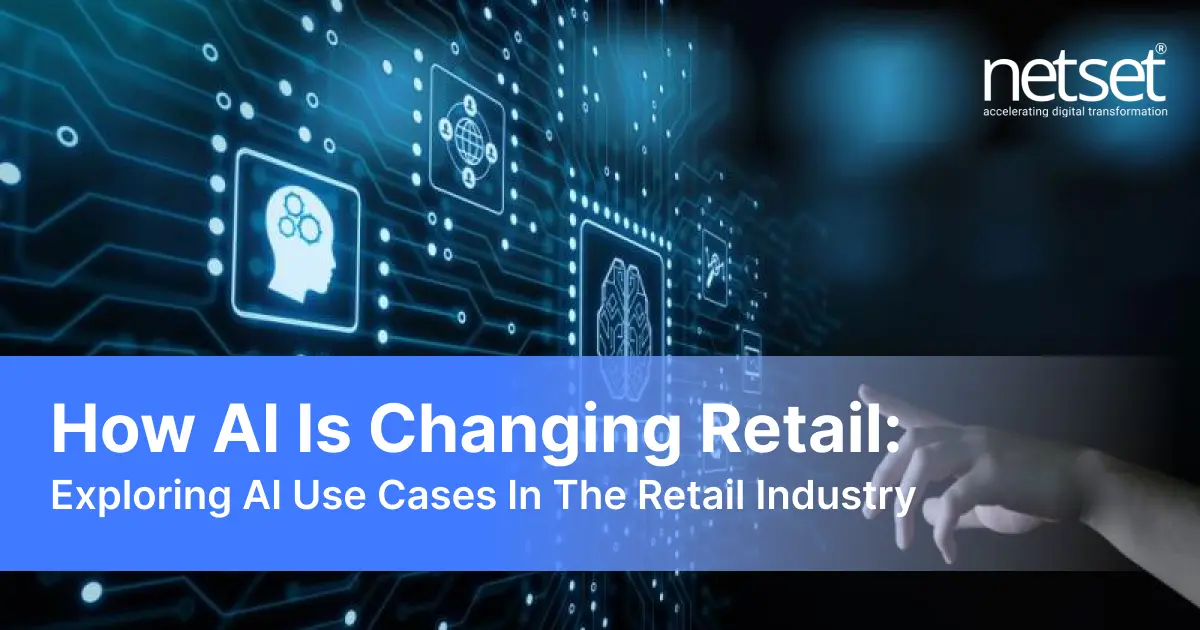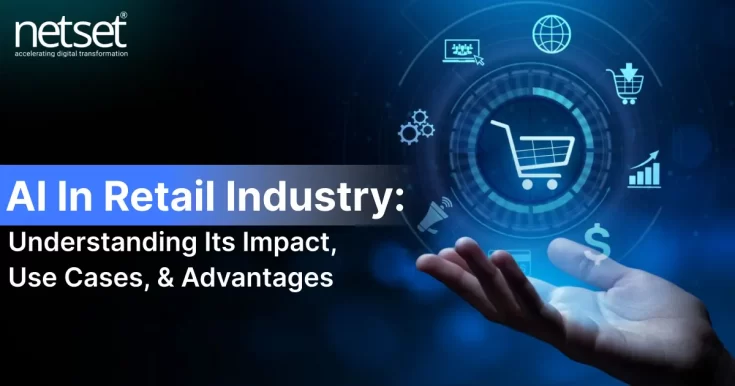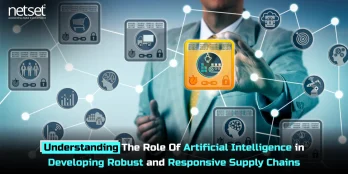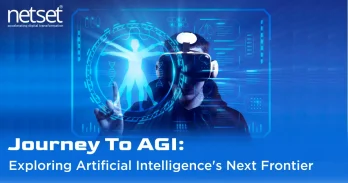In recent years, the retail industry has undergone a major digital transformation. The use of smart systems and technology brought this change to make things faster, easier, and more accurate in different areas of the retail industry.
The Internet of Things (IoT) and Artificial Intelligence (AI) are two major technologies that bring this change. AI solutions for business helps retailers get useful data and insights which helps them run their businesses in a better way.
AI technology does this by using complex algorithms and learning from data it collects from all over the place. This data helps retailers run their stores better and serve their customers more effectively.
Now, let’s see how AI and IoT are shaking up the retail world. AI uses IoT as a way to make improvements. These technologies work together to share data and make things like managing inventory, optimizing supply chains, and offering personalized shopping experiences much better. This makes retail operations more efficient, accurate, and effective.
Before we get into the details of AI in the retail industry, let’s take a look at the ways it can help your business.
Overview Of AI In Retail
In the retail business, artificial intelligence solutions are becoming more and more common. Today’s fast-paced retail industry is based on a new promise of data-driven shopping experiences and higher customer standards. But it’s not easy for retailers to give everyone a personalized shopping experience that is both useful and important. As digital and physical shopping platforms become more integrated, retailers who can come up with new ways to sell will be able to stand out and become market leaders.
Benefits Of Artificial Intelligence In Retail Industry
The integration of AI and ML in the retail sector has increased speed, effectiveness, and precision in all industry segments. They have provided enterprises with access to sophisticated data and information that have been utilized to enhance retail operations and generate fresh business prospects.
Although AI based solutions have many advantages in retail, retailers can take benefit mainly from the below four ones:
-
Enhanced Customer Engagement
Retailers can provide easy customer support in a variety of circumstances, from automated checkouts to customer mood tracking, by utilizing retail artificial intelligence based solutions. Customers can also enjoy tailored and immersive shopping experiences with AI-powered retail solutions. This eventually leads to increased customer involvement.
-
Improved Customer Experiences
To maintain consumer interest, businesses must differentiate their items and provide engaging services and experiences. Retailers may lead with innovation rather than react to change by incorporating predictive analytics to gain additional market information.
-
Effective Promotion And Merchandising
AI software solutions boost marketing and merchandise planning by segmenting customers, creating content, and planning and executing customized advertising campaigns. Walmart, for example, is already using AI to scan competitors’ products, and it plans to utilize robotics to scan its shelves in the near future to improve its product mix.
-
Increased Operational Effectiveness
While routine jobs are automated, AI assists and improves on increasingly difficult work. AI’s function in the retail industry includes, among other things, optimizing delivery tracking, labor scheduling, and delivery route planning.

How AI is Changing Retail: Exploring AI Use Cases in the Retail Industry
Let us now look at different areas where AI developers helped businesses by developing advanced applications:
-
Simplifying Logistics and Supply Chain
A smart, networked, and highly effective supply chain is one of the key components of the vision of the future of the retail industry. The supply chain itself offers many opportunities for introducing automation in the business process because of the large number of stakeholders that participate in it, including manufacturers, distributors, suppliers, retailers, and customers. Supply chain-focused generative AI solutions for retail are known to handle this task with ease.
These are some of the ways that AI is changing shopping in the supply chain and logistics:
- Making demand forecasts more accurate
- Cutting down on the prices of operations and inventory and responding to customers more quickly
- Predicting the demand of people for new products
- Making workplace schedules and plans more accurate by taking into account different limitations and then making the supply chain work best for each one
- Lowering freight costs, making sure suppliers deliver on time, and finally, lowering source risk.
-
MAP Analysis
MAP Analysis is a highly sought-after AI application in the retail industry. The Minimum Advertised Price (MAP) is the lowest allowable price for a product that retailers can advertise. Selling products below the Minimum Advertised Price (MAP) can have a negative impact on retailers’ business. It is essential to monitor sellers who manipulate the MAP price. Retail artificial intelligence enables brands to proactively prevent MAP pricing violations by real-time tracking and monitoring of products.
-
Efficient Product Searches
AI in the retail sector can streamline product searches for customers. Customers can now use real-life photos to search for online retailers selling the corresponding items or products. Machine learning is used to classify and sort a wide range of items from various merchants, providing customers with quick and efficient item search and comparison.
-
Simplifying Retail Store Processes
Store operations have become more complicated as a result of multichannel retail. In a warehouse, store personnel must perform various tasks. Their responsibilities are no longer limited to receiving items, stocking them, and controlling inventory. They must also provide product information, manage promotional offers, and conduct merchandising. AI in retail can help shop managers save time by automating back-office tasks and using robotics for quality inspections. The time saved can be successfully used for other productive activities, saving a significant amount of time in the warehouse.
How Can Netset Software Boost Your Retail Business with AI?
The benefits of using artificial intelligence in the retail business are limitless. Implementing AI can improve your business’s proficiency by providing clear insights into emerging trends and boosting consumer experiences.
The future of AI technology in retail is projected to see rapid expansion, paving the door for greater customization, efficiency, and customer interaction. The technology is anticipated to provide merchants with a sure-fire method of creating unique and personalized customer encounters, hence increasing overall brand loyalty.
The ability of AI to manage large datasets will result in hyper-personalized recommendations, supporting retail cross-selling and upselling techniques. As technology advances, the incorporation of artificial intelligence in the retail industry will be the most important way for retailers to maintain competitiveness and deliver unique consumer experiences.
Netset Software is an Artificial Intelligence development company with a highly experienced team of AI software developers who will assist you in implementing clever AI-driven solutions for your retail business while also addressing all of your issues. To get more information and the best artificial intelligence services, get in touch with our experts.




